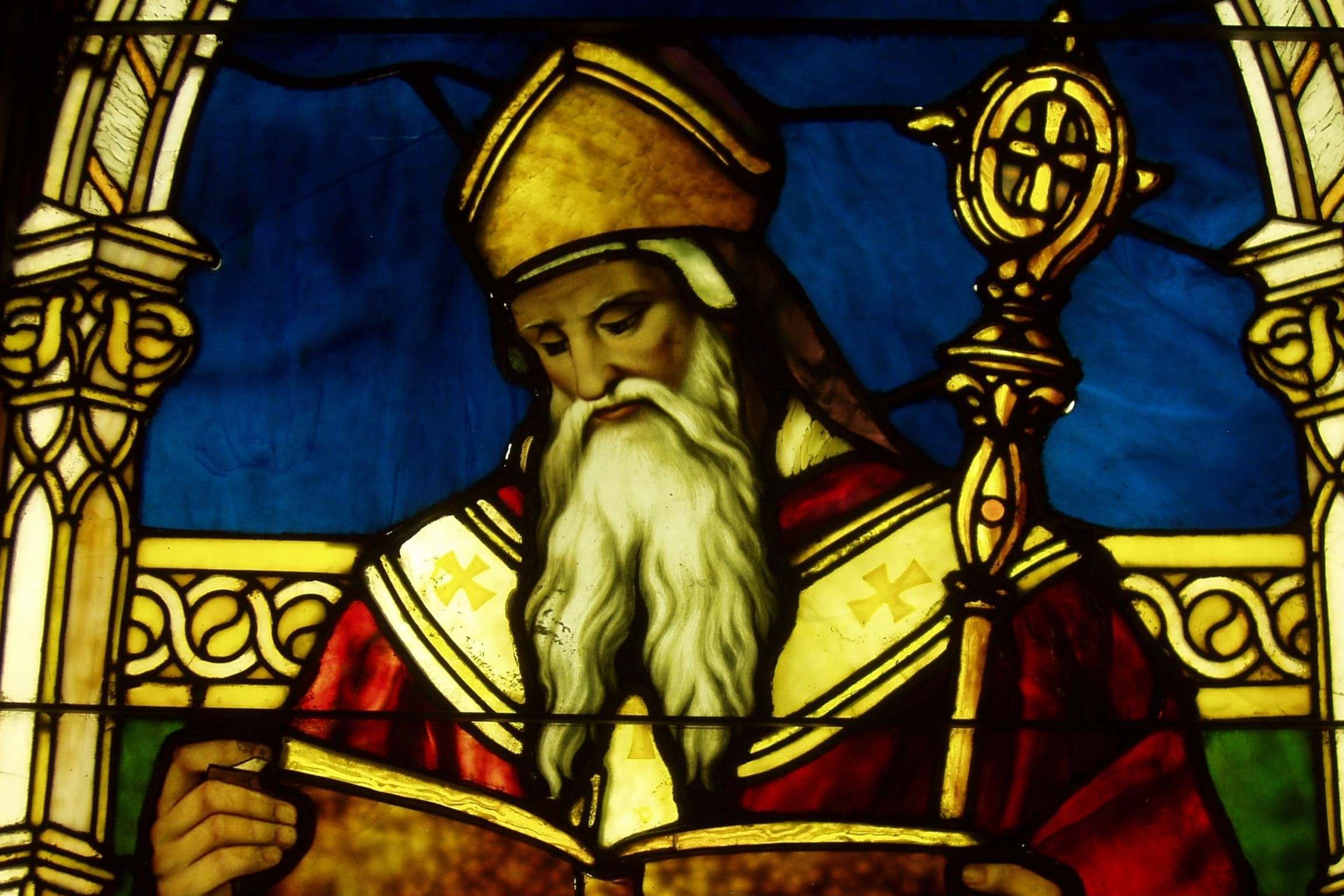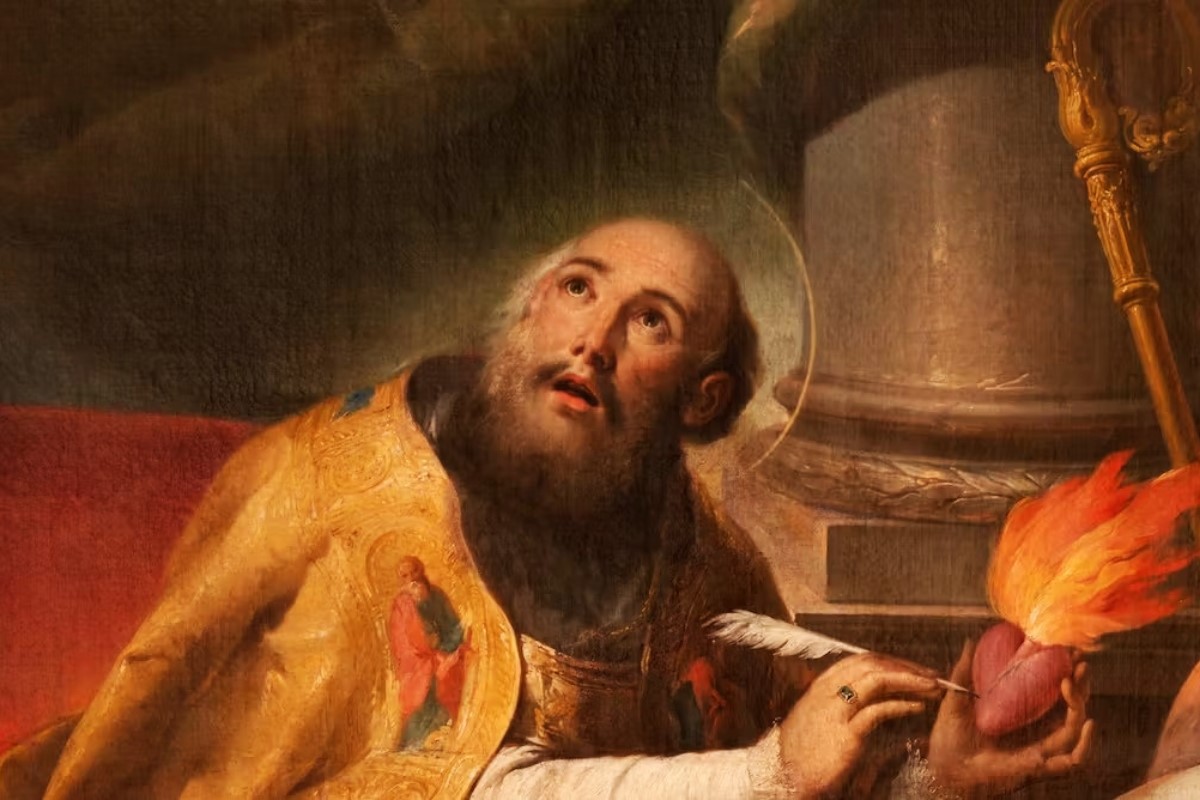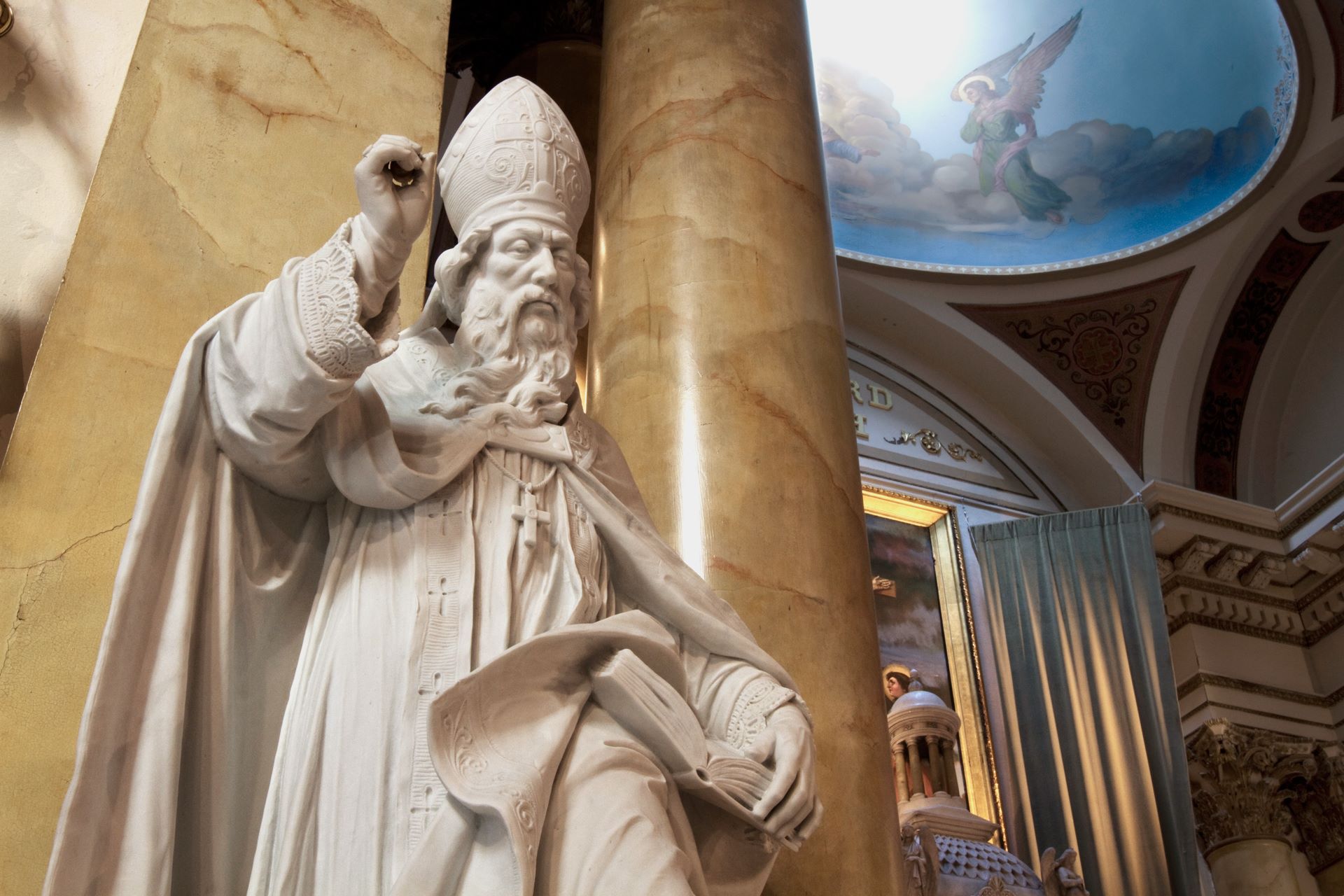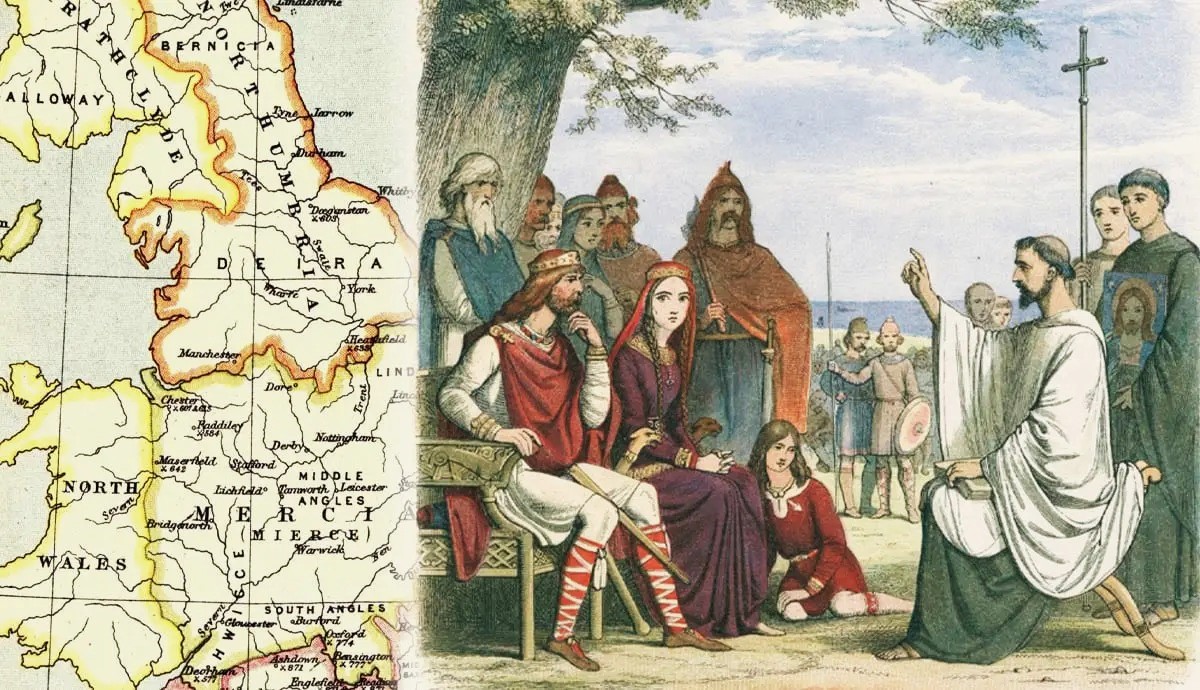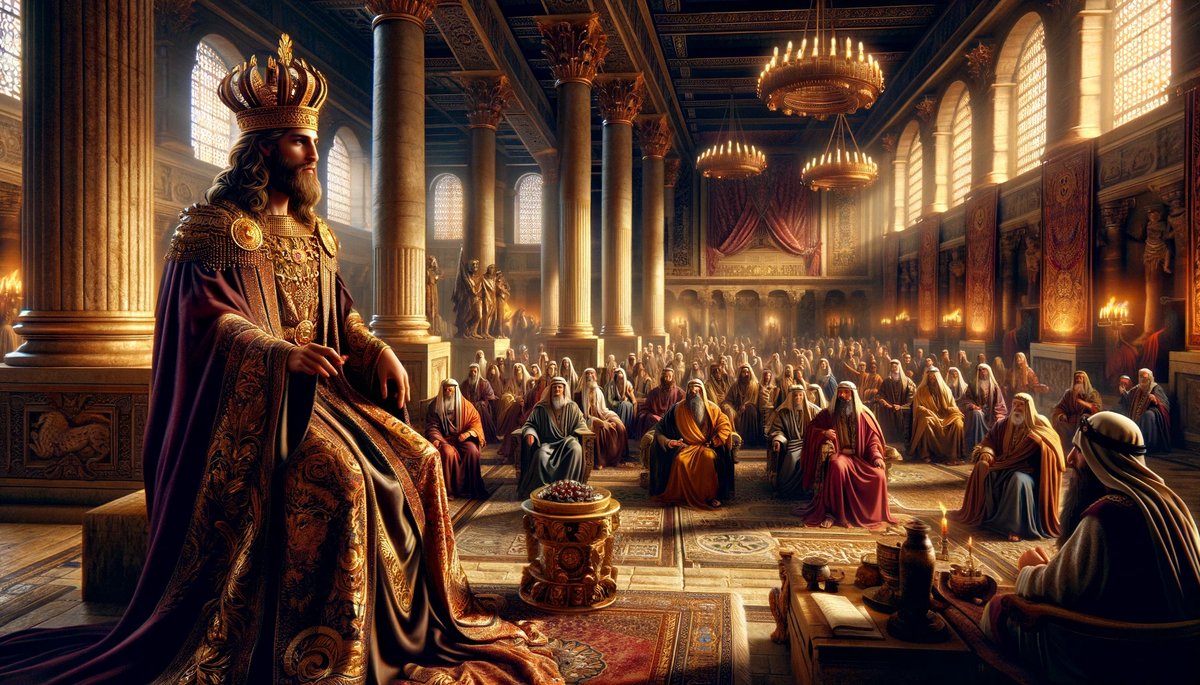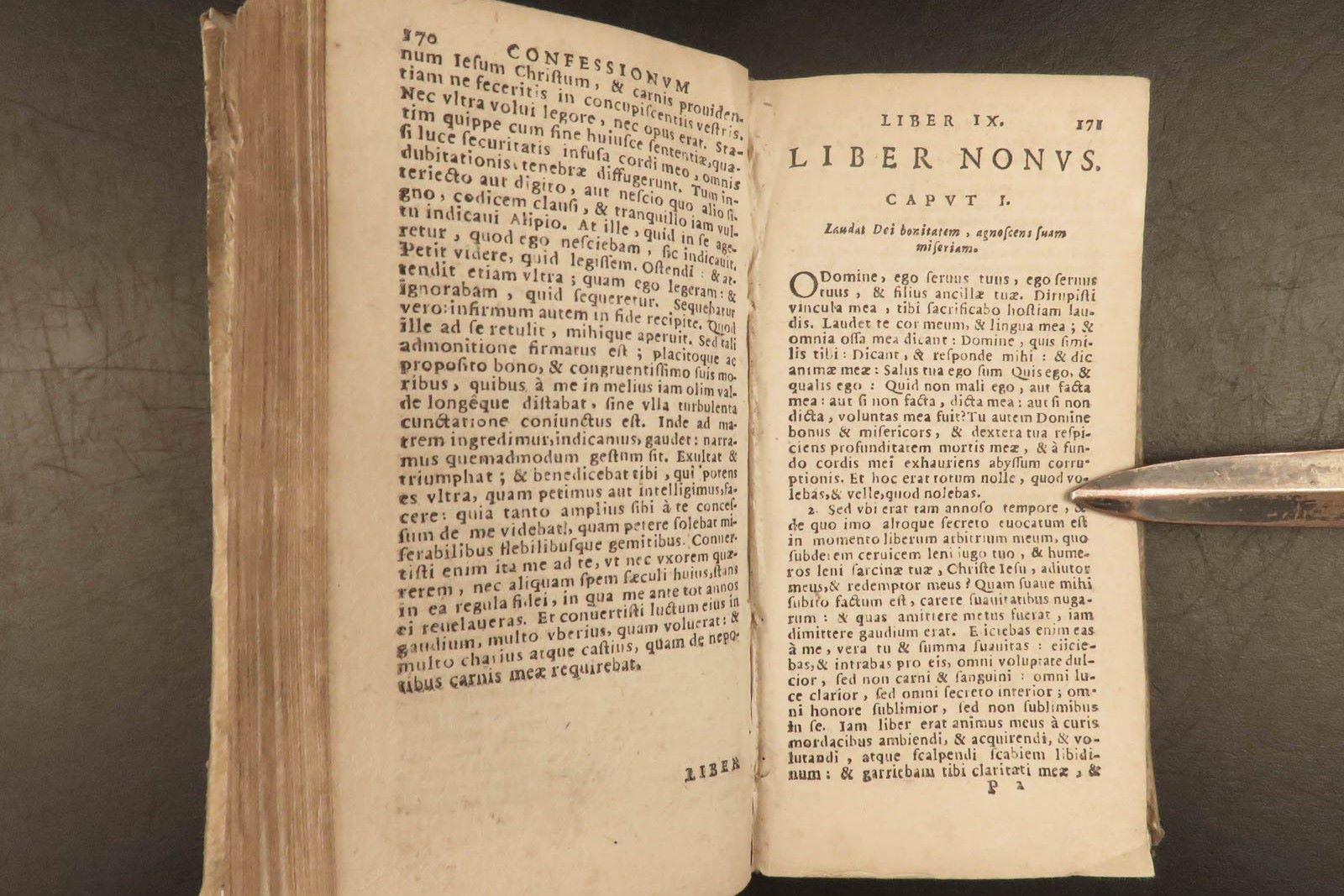Home>Theology and Spirituality>When Was Augustine Of Hippo Born
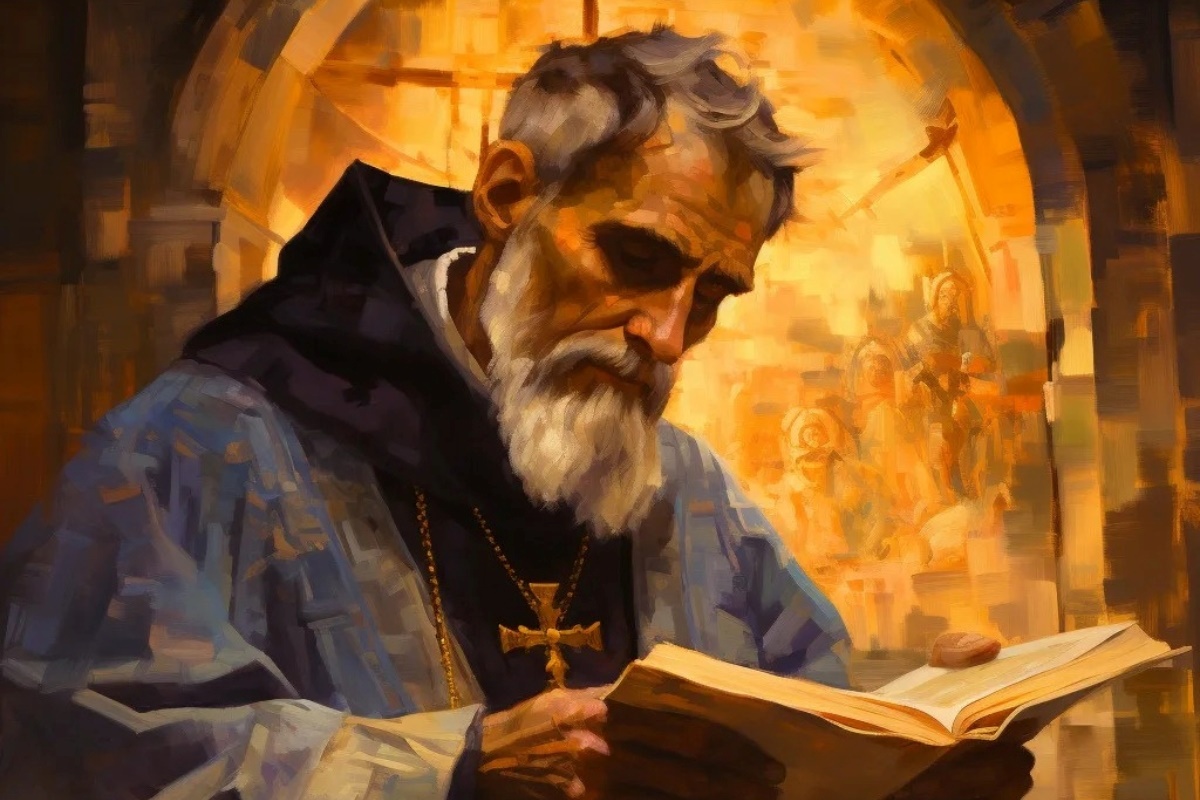

Theology and Spirituality
When Was Augustine Of Hippo Born
Published: February 10, 2024
Jason DeRose, Managing Editor at Christian.net, uses his expertise in religion and journalism to deepen understanding of faith's societal impacts. His editorial leadership, coupled with a strong academic background, enriches the platform’s diverse content, earning him recognition in both journalism and religious circles.
Discover the birth date of Augustine of Hippo, a key figure in theology and spirituality. Learn about his life and contributions to the Christian faith.
(Many of the links in this article redirect to a specific reviewed product. Your purchase of these products through affiliate links helps to generate commission for Christian.net, at no extra cost. Learn more)
Table of Contents
Early Life of Augustine
Augustine of Hippo, also known as Saint Augustine, was born on November 13, 354, in the town of Thagaste, in Roman North Africa (present-day Algeria). His father, Patricius, was a pagan, while his mother, Monica, was a devout Christian. This religious dichotomy would significantly influence Augustine's early life and spiritual journey.
Growing up in a time of great social and political upheaval, Augustine experienced the shifting tides of the Roman Empire and the cultural diversity of North Africa. His family's modest means did not hinder his pursuit of education, and he displayed an early aptitude for learning. Despite financial challenges, his parents were determined to provide him with the best education possible, recognizing his intellectual gifts.
At the age of 11, Augustine was sent to Madaurus, a nearby city, to pursue his education. There, he began his formal schooling, displaying a remarkable intellect and a passion for literature. His academic prowess soon became evident, and he continued his studies in Carthage, the bustling center of Roman Africa.
In Carthage, Augustine delved into the study of rhetoric, a discipline highly esteemed in Roman society. His exposure to the vibrant intellectual and cultural milieu of the city broadened his horizons and exposed him to diverse philosophical and religious ideas. However, this newfound freedom also led him down a path of youthful indiscretions and moral laxity, which would later shape his understanding of human nature and the pursuit of truth.
Despite his mother's unwavering Christian faith and fervent prayers for his spiritual well-being, Augustine initially embraced the teachings of Manichaeism, a dualistic religion that captivated many intellectuals of his time. This marked the beginning of his philosophical and spiritual quest, as he sought to reconcile the allure of worldly pleasures with the yearning for spiritual fulfillment.
The early years of Augustine's life were marked by intellectual curiosity, moral struggles, and a relentless pursuit of truth. These formative experiences would lay the groundwork for his future endeavors and his profound impact on Christian theology and philosophy.
This section provides a glimpse into the formative years of Augustine of Hippo, shedding light on the influences that shaped his early life and set the stage for his remarkable journey of faith and intellectual exploration.
Conversion to Christianity
Amidst the tumultuous backdrop of his intellectual pursuits and moral struggles, Augustine's pivotal encounter with Christianity marked a profound turning point in his life. The catalyst for this transformative shift was his encounter with the renowned bishop, Ambrose of Milan. Ambrose's eloquence and profound understanding of Scripture captivated Augustine, igniting a spark of spiritual awakening within him.
As Augustine grappled with the existential questions that had long plagued his restless mind, he found solace in the profound wisdom of the Christian faith. The teachings of Ambrose, coupled with his own introspective journey, gradually led Augustine to a profound realization of the inadequacy of worldly pleasures and the fleeting nature of temporal pursuits. His intellectual prowess and spiritual yearning converged as he delved into the Scriptures and the writings of influential Christian thinkers.
The climactic moment of Augustine's conversion unfolded in the garden of his friend, Alypius, where he experienced a profound spiritual upheaval. Overwhelmed by a surge of emotions and a deep sense of spiritual longing, Augustine heard a childlike voice urging him to "take up and read." In a moment of divine intervention, he opened the Scriptures and his gaze fell upon the words that would resonate with the depths of his soul. This serendipitous encounter marked the culmination of his arduous quest for truth and meaning, as he embraced the Christian faith with unwavering conviction.
The transformative power of Augustine's conversion reverberated through the corridors of history, shaping the trajectory of Christian theology and spirituality. His profound insights into the human condition, sin, and divine grace would later crystallize in his seminal works, such as "Confessions" and "The City of God." Augustine's conversion stands as a testament to the enduring impact of spiritual awakening and the profound metamorphosis that unfolds when the human heart is touched by the divine.
In this pivotal juncture of Augustine's life, the convergence of intellectual inquiry and spiritual enlightenment laid the foundation for his enduring legacy as a theologian, philosopher, and beacon of Christian thought. His conversion to Christianity serves as a timeless testament to the transformative power of faith and the profound depths of divine grace that transcend the boundaries of time and space.
Works and Writings
Augustine of Hippo's prolific literary output encompasses a diverse array of theological treatises, philosophical reflections, and spiritual meditations that continue to resonate with profound relevance across centuries. His seminal work, "Confessions," stands as a timeless testament to the human experience, intertwining autobiography with profound introspection and theological exploration. In this introspective masterpiece, Augustine bares his soul, delving into the depths of his spiritual journey, moral struggles, and ultimate surrender to the transformative power of divine grace.
The profound impact of Augustine's theological insights is encapsulated in his monumental treatise, "The City of God." Written in the wake of the sack of Rome, this magnum opus grapples with the enduring questions of human suffering, the nature of earthly kingdoms, and the transcendent reality of the City of God. Augustine's profound reflections on the intertwining destinies of the earthly city and the heavenly city offer timeless wisdom that transcends the confines of historical epochs, resonating with contemporary relevance in the midst of societal upheavals and moral quandaries.
Augustine's theological prowess is further exemplified in his exploration of the intricacies of divine grace, human will, and the enigma of evil in his seminal work, "On the Trinity." This profound treatise delves into the mysteries of the Triune God, unraveling the complexities of the divine nature while offering profound insights into the interplay of human volition and the ineffable workings of divine grace.
In addition to his theological treatises, Augustine's corpus of writings encompasses profound reflections on the nature of time, memory, and the human psyche in "Confessions." His philosophical musings on the nature of evil, free will, and the intricacies of human desire continue to captivate scholars and spiritual seekers alike, offering profound insights into the perennial questions that have animated human inquiry across epochs.
The enduring legacy of Augustine's works lies in their profound capacity to transcend temporal boundaries, offering timeless wisdom that continues to illuminate the human quest for meaning, truth, and spiritual fulfillment. His writings stand as a testament to the enduring power of theological inquiry and philosophical reflection, inviting readers to embark on a profound journey of intellectual and spiritual discovery that transcends the confines of historical epochs.
Death and Legacy
Augustine of Hippo's earthly journey culminated in his passing on August 28, 430, in the besieged city of Hippo Regius, Numidia. His profound impact on Christian theology and spirituality reverberates through the annals of history, transcending temporal confines and resonating with enduring relevance across epochs.
The legacy of Augustine is indelibly etched in the annals of Christian thought, shaping the contours of theological inquiry and spiritual reflection for centuries to come. His profound insights into the human condition, the nature of divine grace, and the complexities of the human psyche continue to captivate scholars, theologians, and spiritual seekers, offering timeless wisdom that transcends the boundaries of time and space.
The enduring resonance of Augustine's theological treatises, including "Confessions," "The City of God," and "On the Trinity," attests to the enduring relevance of his profound reflections on the human experience, the enigma of evil, and the transcendent reality of the City of God. His writings serve as a beacon of intellectual and spiritual illumination, inviting readers to embark on a profound journey of introspection and theological inquiry that transcends the confines of historical epochs.
Augustine's profound influence extends beyond the realm of theology, permeating the spheres of philosophy, literature, and the humanities. His nuanced exploration of the complexities of human nature, the yearning for transcendence, and the interplay of divine grace and human volition continues to inspire interdisciplinary dialogue and scholarly inquiry, fostering a rich tapestry of intellectual engagement that transcends disciplinary boundaries.
The enduring legacy of Augustine's theological and philosophical insights is encapsulated in the profound impact they have had on subsequent generations of theologians, philosophers, and spiritual leaders. His profound influence on luminaries such as Thomas Aquinas, Martin Luther, and John Calvin underscores the enduring resonance of his theological legacy, shaping the trajectory of Christian thought and theological inquiry across diverse theological traditions.
In the tapestry of human history, Augustine of Hippo stands as a towering figure whose enduring legacy continues to illuminate the path of intellectual and spiritual inquiry. His profound insights into the human condition, the nature of divine grace, and the transcendent reality of the City of God serve as a timeless testament to the enduring power of theological reflection and spiritual illumination, inviting generations of seekers to embark on a profound journey of intellectual and spiritual discovery that transcends the confines of historical epochs.
